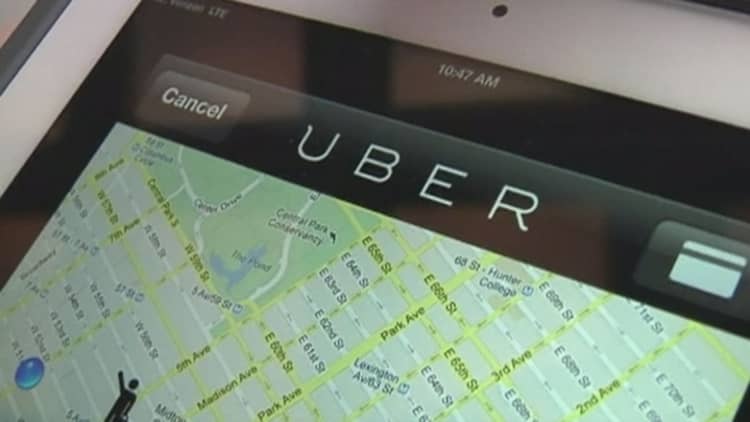
Uber has revealed that is losing more than $1 billion a year in China, amid fierce competition from local ride-hailing rival Didi Kuaidi.
But chief executive Travis Kalanick insisted that Uber is in a better position than its Chinese rival because it is able to fund its losses, at least partly, by using profits from other countries.
"We're profitable in the USA, but we're losing over $1 billion a year in China," Mr Kalanick told Canadian technology news site Betakit. "We have a fierce competitor that's unprofitable in every city they exist in, but they're buying up market share. I wish the world wasn't that way."
A spokesperson for Didi claimed that Mr Kalanick's comments on its financial performance were "outright untrue" and said its business had reached break-even in more than half of the 400 Chinese cities in which it operates.

This new war of words underscores the fierce battle between the two companies in China, where they are both spending heavily on discounts and promotions in pursuit of market share. Uber plans to double the number of Chinese cities in which it operates by the end of this year, to nearly 100.
Mr Kalanick's comments also give an indication of the sums being spent. According to documents leaked to website The Information in January, Uber's global losses grew to nearly a billion dollars in the first half of last year, nearly 50 per cent more than its full-year losses in 2014. Uber declined to comment on the numbers, but Mr Kalanick told Betakit that the crucial difference between its business and Didi Kuaidi is its ability to offset China losses. Uber is the dominant ride-hailing company in most US markets, and it has pushed up revenues by increasing its booking fee and its commission in many US markets.
"I prefer building rather than fundraising," Mr Kalanick said in his interview. "But if I don't participate in the fundraising bonanza, I'll get squeezed out by others buying market share."
Uber has raised more than $10 billion to date, and its investors include Goldman Sachs, TPG, Fidelity and — most recently — Russian billionaire Mikhail Fridman. Didi Kuaidi raised $3bn in a fundraising round last year, bringing its total funds raised to more than $4bn from investors including China's sovereign wealth fund CIC, Alibaba, and Tencent. Didi has also been an active investor in Uber's competitors around the world, including Lyft in the US, and Grab in Southeast Asia.
Both Uber and Didi have spent heavily on subsidies to drivers and riders in an effort to speed adoption and gain scale, in the hope that costs will fall as the number of drivers and riders increases.
"We wouldn't be here today if it wasn't for burning cash," said Jean Liu, Didi Kuaidi's president, last September. She argued that, by using subsidies to get more cars on the road, "waiting times were shortened, fares became cheaper, more users were drawn on to the platform — and drivers on the platform thus wouldn't require subsidies any longer".


